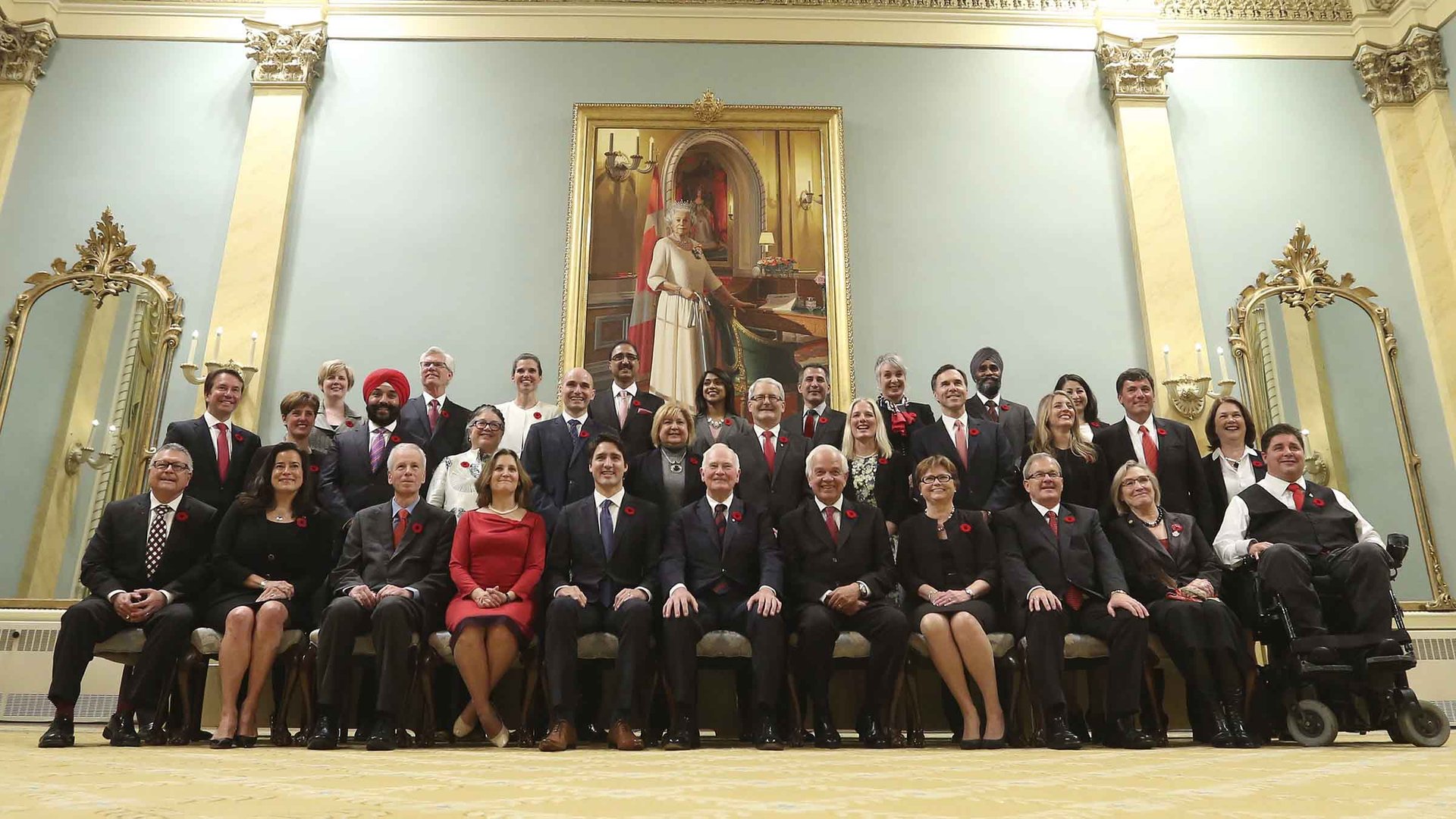Over half of Canada’s newly appointed cabinet skipped “So help me, God” in their oaths
Justin Trudeau, Canada’s newly elected prime minister, has received plenty of attention for appointing the country’s most diverse cabinet to date. Among the 30-strong group there are two aboriginal ministers, three Sikhs, and two ministers with disabilities. That 50% of cabinet ministers are female made plenty of headlines.


Justin Trudeau, Canada’s newly elected prime minister, has received plenty of attention for appointing the country’s most diverse cabinet to date. Among the 30-strong group there are two aboriginal ministers, three Sikhs, and two ministers with disabilities. That 50% of cabinet ministers are female made plenty of headlines.
Another characteristic of Trudeau’s cabinet, however, appears to be its approach to religion. More than half (16 ministers) did not swear in with a religious oath.
Canadian ministers taking the oath of office have the option of dropping religious references, and can “affirm” instead of swearing. The original reads:
I, (name), do solemnly and sincerely promise and swear that I will truly and faithfully, and to the best of my skill and knowledge, execute the powers and trusts reposed in me as (title).
So help me God.
Altering the oath simply requires ministers to say “declare” instead of “swear,” and to omit the line “So help me God.”
Whether this makes Trudeau’s cabinet any less religious than cabinets before it is unclear. Ministers who took a religious oath in the past may have done so only out of tradition; likewise, some in Trudeau’s cabinet may be religious but prefer to keep that out of their day job.
The significance of including religious references in such oaths also varies from country to country. The US oath of office does not include the phrase “So help me God,” though presidents have regularly added it in the past and maintain regular references to religion throughout their terms.
The UK’s oath of allegiance, on the other hand, does include the phrase but politicians open about their faith face plenty of public criticism.